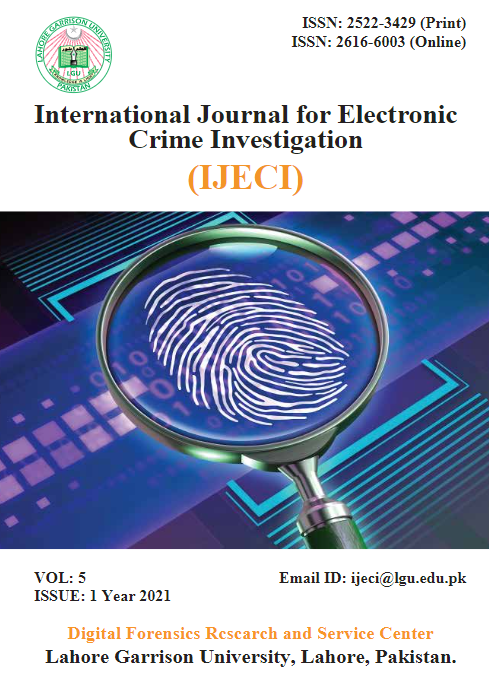Electronic Filing System, Virtual Courts & Online Dispute Resolution -Need of the Hour for Pakistan Legal System
Zafar lqbal Kalanauri
Abstract
This paper addresses the impact that the ongoing coronavirus (COVID-19) pandemic situation is having upon the ability of courts and tribunals to conduct hearings, and the measures that may be deployed in order to ensure that disputes continue to be dealt with fairly, effectively, and an expeditiously as possible. The ongoing situation has compelled both courts and arbitral tribunals to hold virtual hearings, to a far greater extent than has ever been experienced before. As a result, the general level of exposure to the E-filing of documents and videoconferencing technology will lead to a greater level of understanding of and competence in the use of such technology amongst judges, counsel, and parties. Whilst we must all hope that the impact of COVID-19 on the vulnerable, elderly as well as businesses all over the world is minimized, it seems inevitable that there will be greater use of video hearings and the online aspects of dispute resolution not just during the course of the stringent 'lockdown' situation currently being experienced around the world but also, possibly, thereafter. Zafar Iqbal Kalanauri, Arbitrator, Mediator, Master Trainer, Advocate Supreme Court of Pakistan, White Collar Crime Investigator, Adjunct Faculty of Law at SAHSOL, Lahore University of Management Sciences (LUMS) & the Law College University of Punjab, SAF Centre, #3 3rd Floor, 8-Fane Road Lahore 54000, Pakistan. E-judiciary shall be a new step towards modernization in the legal system of Pakistan. Information and communication technology in the court structure of Pakistan, have virtually established a new approach to modernizing the judicial system. The use and an overall review of administration development achieved in the justice system with reference to artificial intelligence, are going to be considered in the sentencing process. In this regard, some of the innovative studies such as video conferences from jail to courtroom and from the courtroom to witnesses shall be discussed. This paper sights a short history of IT introduction and its challenges in the legal system, advancement in the virtual courtroom, and security concerns that may arise as a consequence of these new enabling technologies. The impact of technology with reference to continuing legal education and training field shall be discussed. The paper aims to follow three different groups of study including computerization in past, its present stage, and ways of its evolution in the future. Finally, the scientific experiential analysis will focus on how the computerization in judiciary being an effective tool, will limit and reduce the delay of cases.
Published
2021-08-02
Section
Articles
